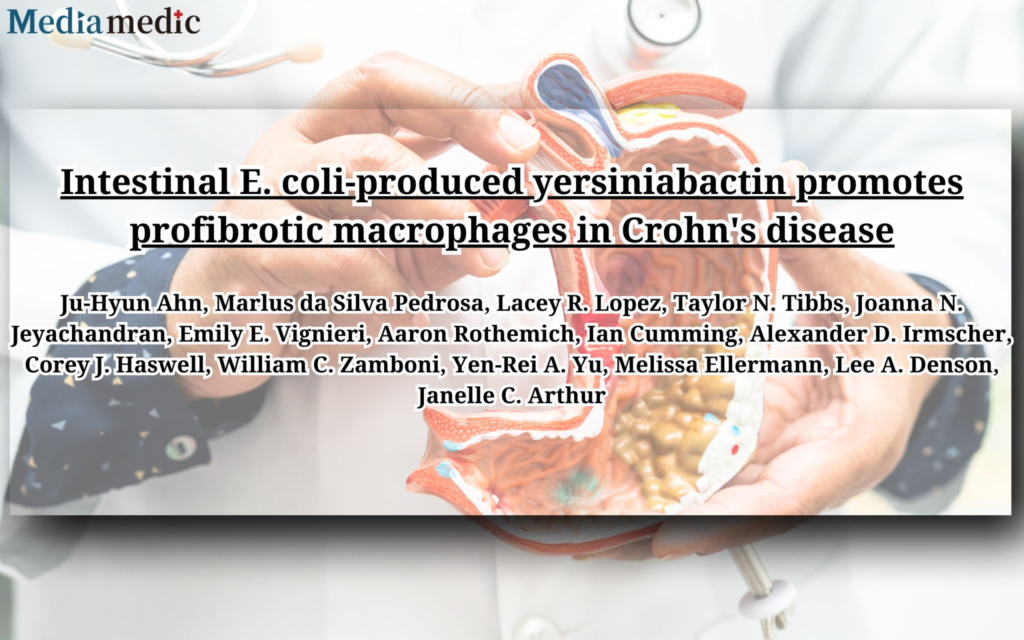
A groundbreaking study by Ju-Hyun Ahn and colleagues sheds new light on the role of the gut microbiota in promoting intestinal fibrosis in Crohn’s disease. The research reveals that adherent-invasive Escherichia coli (AIEC), which produce the metallophore yersiniabactin (Ybt), play a critical role in triggering profibrotic responses in the inflamed intestine.
The study demonstrates that Ybt-producing AIEC deplete intracellular zinc in macrophages, stabilizing hypoxia-inducible factor 1-alpha (HIF-1α), a metal-dependent immune regulator. This stabilization drives profibrotic gene expression, leading to macrophage activation that contributes to tissue fibrosis. Importantly, HIF-1α+ macrophages were found to localize at sites of active disease in both human IBD-fibrotic tissues and mouse models, underscoring the physiological relevance of these findings.
These insights reveal how microbiota-mediated metal sequestration can act as a profibrotic trigger, opening new avenues for targeted therapies aimed at macrophage regulation in Crohn’s disease and other forms of inflammatory bowel disease (IBD).


